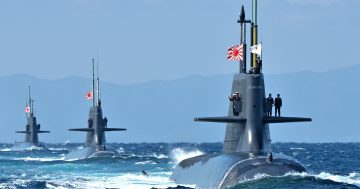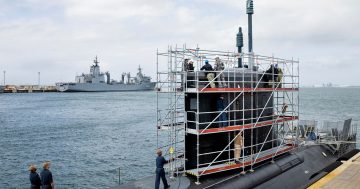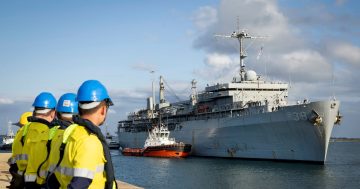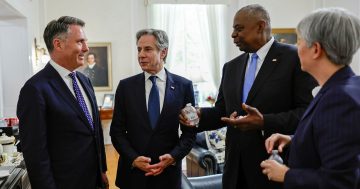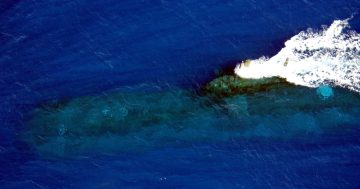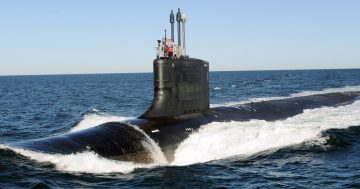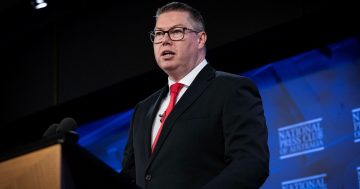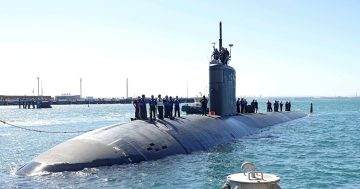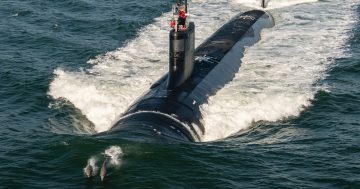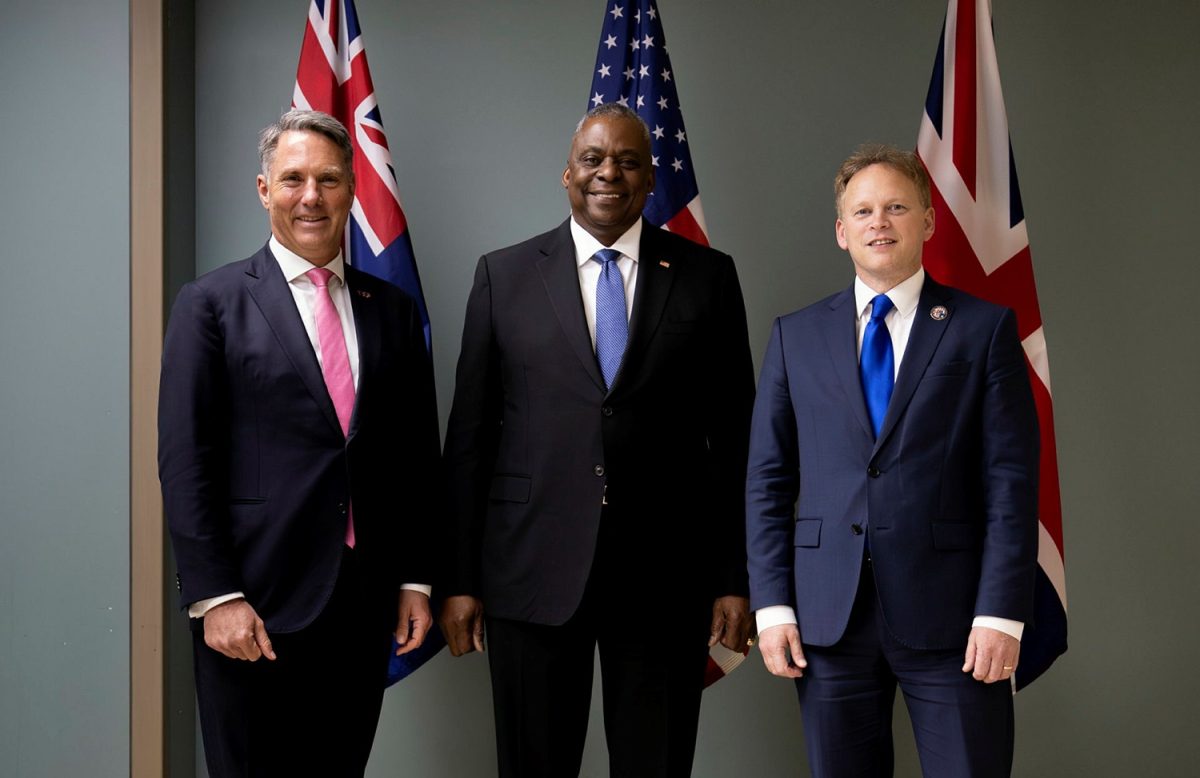
Defence Minister Richard Marles, US Secretary of Defense Lloyd Austin and UK Secretary of State for Defence Grant Shapps met in California on 2 December. Photo: ADF
Plans for the AUKUS trilateral defence and security partnership between Australia, the US and the UK are beginning to look a little clearer after all three countries’ defence secretaries and ministers met over the weekend.
Hosted in California by US Secretary of Defense Lloyd Austin, Deputy Prime Minister and Defence Minister Richard Marles and UK Secretary of State for Defence Grant Shapps discussed both Pillars of the AUKUS construct: the Pillar One plan for Australia to acquire nuclear-powered submarines and Pillar Two which will see the partners cooperate on developing other advanced capabilities.
In a joint statement released at the end of the meetings, the partners said AUKUS is a generational opportunity to leverage their longstanding partnerships to address security challenges and contribute to stability and prosperity.
“The Secretaries and Deputy Prime Minister reaffirmed that at the core of this partnership is the shared resolve to bolster security and stability and ensure that the Indo-Pacific remains a region free from coercion and aggression,” it reads.
The partners reviewed what they called “the exceptional progress that has been made” since the Pillar One plans were announced in March.
They also reaffirmed the three-phased submarine plan: establishing Submarine Rotational Force-West (SRF-West) in Australia by 2027; selling US Virginia class submarines to Australia from the early 2030s; and delivering SSN-AUKUS boats to the UK’s Royal Navy in the late 2030s and the Royal Australian Navy in the early 2040s.
They said significant progress had been made in education and training opportunities for Australian Navy personnel to attend US and UK submarine and nuclear schools; the first tranche of Australian industry personnel have commenced work at Pearl Harbor Navy Shipyard in the US and at Barrow-in-Furness shipyard in the UK; and that preparation is underway for Australian personnel to support the forward-basing of US and UK boats at HMAS Stirling at Henderson in WA as part of SRF-West.
The partners also reaffirmed their commitment to uphold the highest standard for nuclear non-proliferation. They discussed the importance of securing legislative support across all three systems to ensure the success of AUKUS.
Indeed, on 1 December, the US State Department approved the transfer of resources and personnel to Australia to help stand up SRF-West.
A US Defense Security Cooperation Agency (DSCA) notification said the estimated US$2 billion deal ($3 billion) would include training devices, personnel training, engineering services, support equipment and special tools, training software and courseware, supply chain and industrial base support, facilities and construction support, publications and technical documentation, logistics support services, and test and trials support.
For Pillar Two, the partners committed to a series of integrated trilateral experiments and exercises aimed at enhancing the capability development of autonomous maritime systems; the deployment of advanced artificial intelligence (AI) algorithms on P-8A Poseidon maritime aircraft to process data from each nation’s sonobuoys; and to integrate the ability to launch and recover undersea vehicles from torpedo tubes on current submarines in service.
Other commitments were made to accelerate the development of quantum technologies for positioning, navigation, and timing in military capabilities; to integrate artificial intelligence algorithms and machine learning to enhance force protection, precision targeting, and intelligence, surveillance, and reconnaissance; and to accelerate capabilities that provide the AUKUS partners with advanced technology to identify emerging threats in space through a Deep Space Advanced Radar Capability program.
In the cyber domain, the partners have committed to engaging on cyber security with critical suppliers to the naval supply chain and collaborating with industry to deploy advanced cyber security tooling.
Other commitments were made to ensure the International Joint Requirements Oversight Council, which is co-chaired by the Vice Chiefs of Defence from the AUKUS partners, is a key collaborative forum; to a series of AUKUS innovation challenges where industry can compete for prizes on a common innovation challenge topic; that the partners work to facilitate deeper and faster defence trade by streamlining policies and processes; and that an AUKUS Advanced Capabilities Industry Forum and AUKUS Defence Investors Network are established.
“Together, these activities enhance the AUKUS partners’ capabilities, collective security, and deterrence amid an evolving strategic and security environment,” the statement reads.
“The initiatives and accomplishments announced today advance these objectives and set the conditions for continued partnership and progress towards a bold and innovative future for AUKUS.”
In a post-meeting press conference, Mr Marles said, “Significantly, in terms of today’s meeting, it is actually Pillar Two, which has taken centre stage.
“And indeed, I think today’s meeting will be regarded as a critical moment in the history of Pillar Two of AUKUS, and that is the sharing and development of advanced technologies between our three countries,” he said.
“We’re putting in place the architecture which will enable that to happen.”
Original Article published by Andrew McLaughlin on Riotact.


